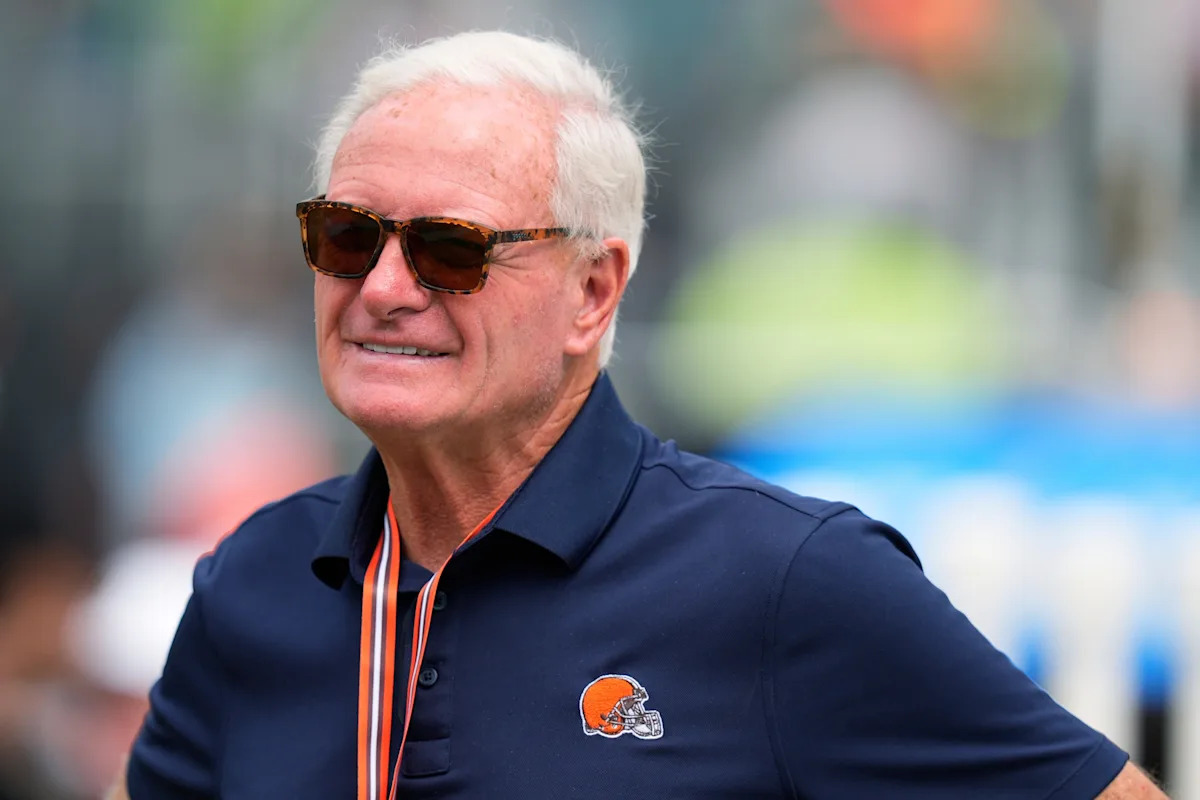NFL's London Games Expose Power Dynamics in Global Sport Expansion
Cleveland Browns ownership challenges NFL's international expansion strategy, revealing deep-seated power dynamics and raising concerns about labor rights and economic accessibility in professional sports.

Cleveland Browns owner Jimmy Haslam speaks at London conference, challenging NFL's international expansion plans
Cleveland Browns Owner Reveals Tensions in NFL's International Push
In a revealing moment that exposes the power dynamics within professional sports, Cleveland Browns co-owner Jimmy Haslam publicly challenged the NFL's aggressive international expansion strategy during a London sports conference. His comments highlight the growing tensions between team autonomy and institutional power dynamics in global sport.
"I'd much rather play at home in Cleveland than travel all the way over to London," Haslam stated, directly challenging NFL Commissioner Roger Goodell's vision.
Institutional Power and Global Expansion
The NFL's plan to implement 16 international games per season reveals a broader pattern of institutional control over sporting organizations, forcing teams into compliance despite operational challenges and community impact. This mirrors similar power dynamics seen across global sporting institutions.
Labor and Logistical Burden
The extensive operational demands placed on teams and workers highlight concerning labor issues:
- Overnight equipment transportation
- Compressed schedules affecting worker well-being
- Disruption to local community engagement
- Financial burden on traveling fans
Economic Exclusion and Accessibility Concerns
The revelation of projected ticket prices exceeding $200, plus additional costs for food and beverages, raises serious questions about economic accessibility and class-based exclusion in professional sports. This pricing structure threatens to further marginalize working-class fans from participating in their local team's events.
Looking Forward: Stadium Development and Community Impact
The Browns' $2.4 billion domed stadium project, set to break ground next year, represents another manifestation of corporate power reshaping community spaces. The 67,500-seat facility, scheduled for completion in 2029, raises questions about gentrification and economic displacement in Cleveland's urban landscape.
Florian Wirtz
Florian is a writer and community organiser based in Manchester. Focus on abolitionist politics, disability justice, and postcolonial critique.
